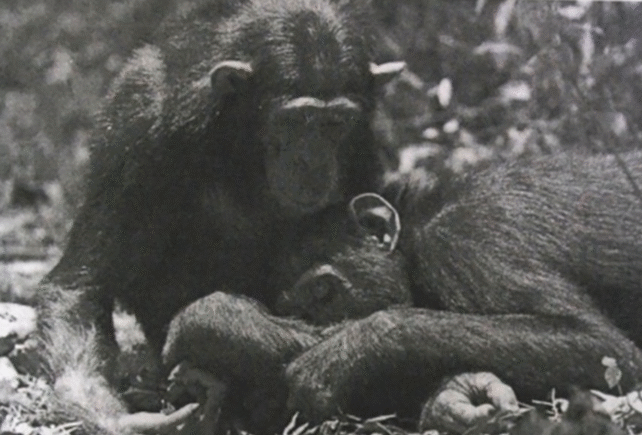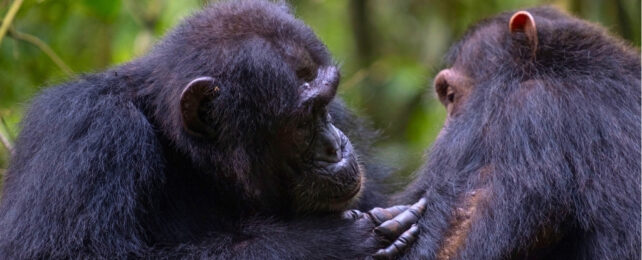Chimpanzees in the wild are performing what looks like first aid on each other's wounds, and primatologists are only just beginning to formally catalogue the behavior.
In the forests of Africa, growing evidence suggests that some chimp communities rub insects, leaves, or munched materials on the injuries of others. They also lick each other's wounds and suck each other's cuts.
It's not yet clear whether any of these tactics actually work to heal injuries or stave off infections; however, some researchers suspect this type of wound care is a helpful strategy employed by more primates than we previously thought.
"By documenting how chimpanzees identify and utilize medicinal plants and provide care to others, we gain insight into the cognitive and social foundations of human healthcare behavior," says primatologist Elodie Freymann of the University of Oxford.

For decades now, experts have seen chimpanzees swallowing, chewing, or applying plant matter to their bodies, and because some of these plant species have anti-inflammatory, antimicrobial, or pain-relieving properties, scientists have interpreted such observations as self-directed medicinal care.
Then, in 2019, researchers studying chimpanzees in the forests of Gabon noticed a behavior that had never been formally described before.
Chimps in this community were giving each other what looked like first aid. Specifically, they were treating each other's wounds by rubbing insects on them – insects with possible antiseptic properties.
In the wild, such reports of 'prosocial wound care' among chimps are rare. In fact, only a handful cases have been reported in the scientific literature since 1986.
To find more, Freymann and colleagues combed through the data of recent surveys and historical reports in Uganda's Budongo Forest.
Between 1993 and 2024, they tallied seven cases of chimps caring for the wounds of others, using what look to be "medicinal hygiene behaviors".
"Our research helps illuminate the evolutionary roots of human medicine and healthcare systems," says Freymann.
Most reported observations involved an uninjured individual grooming or licking the wounds of another, either kin or non-kin. Sometimes, however, the chimp would dab another's wound with a leaf, or press chewed plant material on the injury.
In two cases, a chimp tried to remove a human-made snare from another chimp's body.

"These behaviors add to the evidence from other sites that chimpanzees appear to recognize need or suffering in others and take deliberate action to alleviate it, even when there's no direct genetic advantage," says Freymann.
Based on their recent findings, Freymann and her colleagues argue that "prosocial healthcare is more widespread across chimpanzee populations than previously recognized."
The international team is calling for more research on how our closest relatives might use medicinal plants to care for themselves and others.
The study was published in Frontiers.
